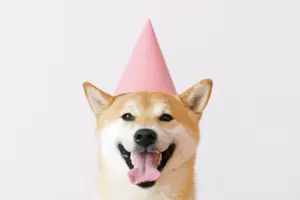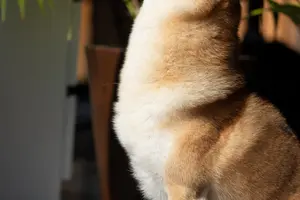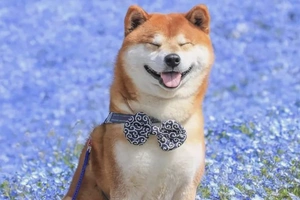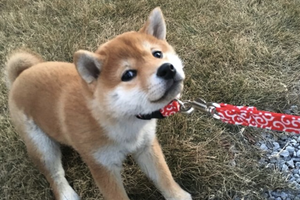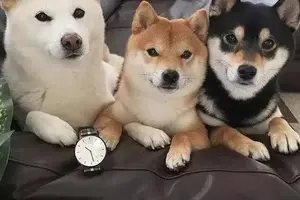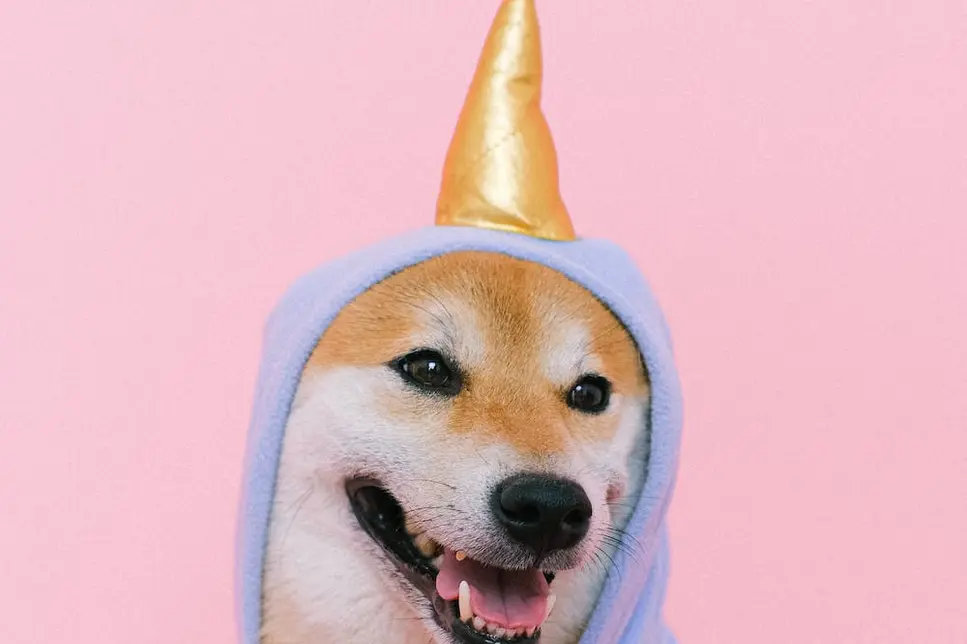
Shiba Inus are a popular and beloved breed of dog, known for their spunky personalities and adorable appearance. However, when it comes to choosing a Shiba Inu, size and proportions matter. Understanding the different sizes and proportions of Shiba Inus can help you find the perfect fit for your lifestyle. In this article, we will discuss the importance of understanding Shiba Inu size and proportions, and provide guidance on how to choose the right Shiba Inu for your home and family.
Understanding Shiba Inu Breed Standards
Shiba Inus are a breed of dog that originated in Japan, and are known for their small to medium size and fox-like appearance. According to the American Kennel Club (AKC), Shiba Inus should ideally weigh between 17 and 23 pounds, and stand between 13.5 and 16.5 inches tall at the shoulder.
In addition to size, there are other important breed standards to consider when choosing a Shiba Inu. These include coat color, which can range from red to sesame to black and tan, as well as overall appearance and temperament.
Understanding these breed standards can help you choose a Shiba Inu that is healthy, well-bred, and fits your specific needs and lifestyle. It is important to note, however, that not all Shiba Inus will adhere perfectly to these breed standards, and that individual dogs may vary in size and appearance.
Factors to Consider When Choosing a Shiba Inu
When choosing a Shiba Inu, there are several important factors to consider in addition to breed standards. These include:
-
Your living space: Shiba Inus are adaptable dogs, but they may not be the best fit for small apartments or homes without a yard. Consider whether you have enough space for a Shiba Inu to exercise and play.
-
Your lifestyle: Shiba Inus are active dogs that require daily exercise and mental stimulation. If you are a busy person who is not home often, a Shiba Inu may not be the best fit for your lifestyle.
-
Your activity level: Shiba Inus are energetic and playful dogs, but they also enjoy relaxing and cuddling with their owners. Consider whether you are willing and able to provide your Shiba Inu with the exercise and attention they need.
-
Your family: Shiba Inus can be great family pets, but they may not be the best choice for households with young children or other pets. Consider whether a Shiba Inu is a good fit for your family dynamic.
By considering these factors, you can choose a Shiba Inu that is well-suited to your lifestyle and needs. Remember, owning a dog is a long-term commitment, so it is important to choose a pet that you can provide with a happy and healthy home for years to come.
Small Shiba Inus: Pros and Cons
Small Shiba Inus can be a great choice for those who live in apartments or smaller homes, or who prefer a dog that is easier to handle and transport. However, there are also some potential disadvantages to owning a small Shiba Inu. Here are some of the pros and cons to consider:
Pros:
-
Easier to handle: Small Shiba Inus are easier to pick up and carry, which can be helpful for trips to the vet or when traveling.
-
Better for small living spaces: If you live in an apartment or small home, a small Shiba Inu may be a better fit than a larger dog.
-
Adorable appearance: Let’s face it, small dogs are just plain cute, and Shiba Inus are no exception!
Cons:
-
Health concerns: Small Shiba Inus can be more prone to health issues like dental problems, joint issues, and obesity.
-
Higher energy levels: Despite their small size, Shiba Inus are energetic dogs that require daily exercise and mental stimulation. This can be a challenge for some owners.
-
May be more prone to anxiety: Small dogs can be more prone to anxiety and nervousness, which can manifest in behaviors like excessive barking or aggression.
By weighing these pros and cons, you can decide whether a small Shiba Inu is the right fit for you and your lifestyle. Remember, every dog is unique, so it is important to meet with breeders or rescue organizations and spend time with individual dogs before making a decision.
Large Shiba Inus: Pros and Cons
Large Shiba Inus can be a great choice for those who prefer a dog with a more substantial presence and personality. However, there are also some potential disadvantages to owning a large Shiba Inu. Here are some of the pros and cons to consider:
Pros:
-
More substantial presence: Large Shiba Inus can be more imposing and impressive than their smaller counterparts, which can be a plus for some owners.
-
Better for outdoor activities: If you enjoy hiking, running, or other outdoor activities, a larger Shiba Inu may be a better fit for you.
-
Lower risk of health issues: While all dogs are prone to health issues, larger dogs may be less prone to certain problems like dental issues or obesity.
Cons:
-
More difficult to handle: Large Shiba Inus are heavier and more difficult to pick up or carry, which can be a challenge for some owners.
-
Higher energy levels: Despite their larger size, Shiba Inus are energetic dogs that require daily exercise and mental stimulation. This can be a challenge for some owners of larger dogs.
-
May require more space: Larger dogs may require more space to exercise and play, which can be a problem for those who live in smaller homes or apartments.
By considering these pros and cons, you can decide whether a large Shiba Inu is the right fit for you and your lifestyle. Remember, every dog is unique, so it is important to meet with breeders or rescue organizations and spend time with individual dogs before making a decision.
Mixed Breed Shiba Inus: What to Expect
Mixed breed Shiba Inus can be a great choice for those who want a dog with unique traits and characteristics. However, it is important to understand that mixed breed dogs can vary widely in size and appearance, depending on the breeds that are mixed. Here are some things to consider when choosing a mixed breed Shiba Inu:
-
Size: Mixed breed dogs can be larger or smaller than purebred Shiba Inus, depending on the breeds that are mixed. It is important to research the breeds that are combined to get an idea of what size your mixed breed Shiba Inu may be.
-
Coat: Mixed breed Shiba Inus may have coats that are different from purebred Shiba Inus, depending on the breeds that are mixed. It is important to research the breeds that are combined to get an idea of what coat type your mixed breed Shiba Inu may have.
-
Temperament: Mixed breed dogs can have a wide range of temperaments, depending on the breeds that are mixed. It is important to research the breeds that are combined to get an idea of what temperament your mixed breed Shiba Inu may have.
By researching the breeds that are mixed, you can get a better idea of what to expect from your mixed breed Shiba Inu. It is also important to spend time with individual dogs before making a decision, as every dog is unique and may have different traits and characteristics.
Training and Socialization for Shiba Inus of Different Sizes
Training and socialization are important for all dogs, regardless of size or breed. However, the approach to training and socialization may vary depending on the size of your Shiba Inu. Here are some tips for training and socializing Shiba Inus of different sizes:
Small Shiba Inus:
-
Use positive reinforcement: Small Shiba Inus may be more sensitive to harsh training methods, so it is important to use positive reinforcement techniques like treats and praise.
-
Socialize early and often: Small Shiba Inus may be more prone to anxiety and nervousness, so it is important to socialize them early and often to help them feel more comfortable around people and other dogs.
Large Shiba Inus:
-
Be consistent: Large Shiba Inus may be more stubborn than their smaller counterparts, so it is important to be consistent and firm with your training.
-
Provide plenty of exercise: Large Shiba Inus have high energy levels, so it is important to provide them with plenty of exercise to keep them mentally and physically stimulated.
Mixed Breed Shiba Inus:
-
Research the breeds that are mixed: As mentioned earlier, mixed breed Shiba Inus can vary widely in temperament and behavior depending on the breeds that are mixed. It is important to research the breeds that are combined to get an idea of what training methods and socialization may work best.
-
Be patient: Mixed breed Shiba Inus may have unique quirks and traits, so it is important to be patient and work with them to find the best training and socialization methods.
By considering the unique needs and characteristics of Shiba Inus of different sizes, you can provide them with the training and socialization they need to be happy and well-behaved members of your family.
Choosing the right size and proportion of Shiba Inu is an important decision that can impact your life for years to come. By understanding Shiba Inu breed standards, considering your living space and lifestyle, and weighing the pros and cons of different sizes, you can make an informed decision when choosing a Shiba Inu.
Whether you choose a small, large, or mixed breed Shiba Inu, it is important to provide them with the love, attention, and training they need to be happy and healthy members of your family. With their spunky personalities and adorable appearance, Shiba Inus can make wonderful pets for those who are willing to put in the time and effort to give them a happy and fulfilling life.

